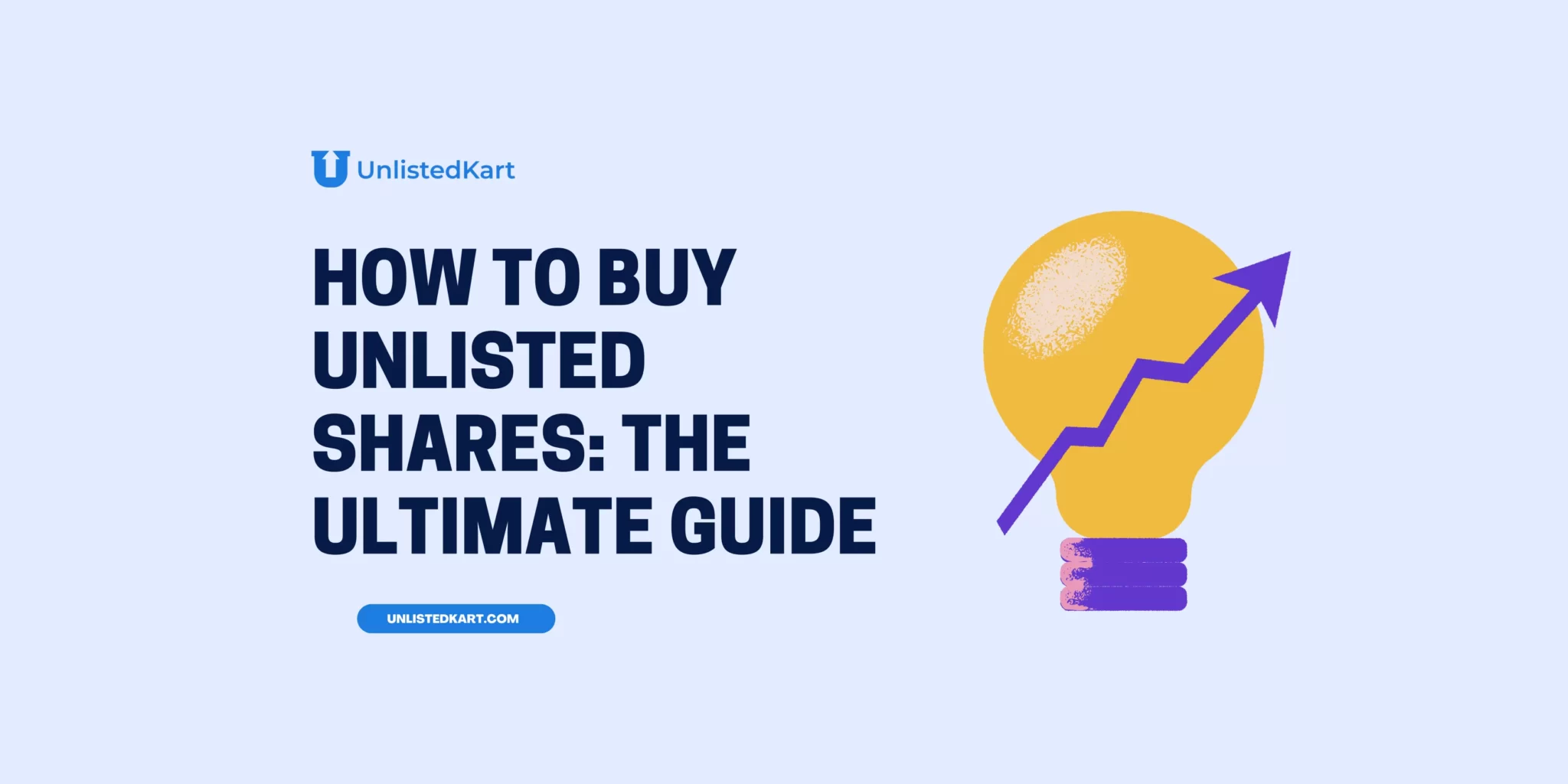Before searching the question of how to buy unlisted shares, it becomes important to dwell on the question of what unlisted shares are.
In simple terms, unlisted shares are shares of a company that hasn’t gone public yet. By purchasing the unlisted shares of a private firm, you can participate in it even before its initial public offering (IPO).
The anticipated profits are one of the primary reasons shareholders purchase these shares. Companies provide lower prices on these shares in an effort to get investors to purchase a sizeable portion of their unlisted shares. Therefore, there is a chance that the price of these shares will rise during the IPO, making investors wealthy.
How To Invest In Unlisted Shares
There are many means of acquiring unlisted shares and they are all worth the effort, but we believe you deserve better answers when you type “unlisted shares buy online” in the search bar of your browser.
Unlisted securities are traded on the over-the-counter (OTC) market and are sometimes referred to as OTC securities. On the OTC market, market makers, also known as dealers, make it easier to acquire and sell unlisted securities.
Read More- FAQs: How To Sign Up on Unlistedkart
Since unlisted shares may only be transferred online, anybody who wishes to purchase them must have a Demat account. This is done to ensure accountability, investment safety, and corporate governance.
So we have put together a list of means for how to buy unlisted shares online as you please with a hassle-free experience!
Buying Directly Through Promoters
Through private placements, investors can purchase unlisted shares directly from promoters. Make contact with a broker, investment bank, or wealth manager before allocating funds so they can assist you with price discovery and appraisal. They’ll also assist you in making contact with the company’s promoters and determining a mutually acceptable valuation. This is a very popular way of acquiring unlisted shares because responsibility partially falls on a third party to help you secure your desired shares too.
AIF schemes
Alternative Investment Funds (AIFs) are collective investments for high-net-worth individuals and institutional investors. Both of these funds seek to profit from increases in values following a listing as well as pre-IPO valuations. They are considered lesser due to the affordability and the fact that not many individuals acquire such net worth, to begin with. It is mainly used by a much smaller margin as compared to some of our other options here.
PMS schemes
For individual investors, a number of financial organisations provide Portfolio Management Services (PMS). PMS stands for a personalised stock portfolio that professional portfolio managers manage in accordance with predetermined investment goals. This is mainly for those who want a set list to choose from and the list itself is professionally curated and most likely advantageous to the investor.
ESOP farming
Employee stock ownership is a common benefit offered by businesses. To discover workers eager to sell their shares, you can connect with platforms that specialise in the sourcing and placement of unlisted shares. Employee stock options (ESOP) are offered by brokers at these intermediaries at set pricing. For some unlisted startups, it is the exclusive way to purchase shares. It is a very standard method that is also widely practised by those interested in investing in unlisted shares.
Investing in pre-IPO
Pre-IPO trading describes the purchasing and selling of a company’s shares before the company’s initial public offering (IPO). There are platforms provided by a number of investment firms where you may trade unlisted shares. Even though the transaction is private, you will still get shares from unlisted businesses immediately delivered to your Demat account.
You might also decide to put money into unlisted firms with the potential for rapid expansion. For these investments, a minimum investment of Rs. 50,000 is required.
One such platform where you can invest in shares before their IPO is unlistedkart.com.
Related article – Difference Between Listed and Unlisted Shares: A Brief Guide
Crowdfunding platforms and angel funds
Large investor groups can support a variety of start-ups and small businesses in exchange for stock through equity crowdfunding. Angel investors, meanwhile, provide capital for prospective firms in return for shares or royalties.
Those who want to invest a lot of money in firms that are not publicly traded can utilize crowdfunding platforms and angel funds.
FAQs
- Is it profitable to buy unlisted shares?
The anticipated profits are one of the primary reasons shareholders purchase these shares. Companies provide lower prices on these shares in an effort to get investors to purchase a sizeable portion of their unlisted shares. Therefore, there is a chance that the price of these shares will rise during the IPO, giving the investors a healthy return.
- How to buy unlisted shares in Zerodha or Can I buy unlisted shares in Zerodha?
Answer: No, you can’t purchase unlisted shares through Zerodha since that would be seen to be an offer that goes against the spirit of the rules set down by SEBI, the regulator. After purchasing unlisted shares, you can, however, hold them electronically using a Zerodha Demat account.
- How are Unlisted Shares Valued?
Answer: The fair market value (FMV) approach is used to appraise shares that are not publicly traded. FMV is determined by the underwriters or the investment bankers because unlisted shares don’t trade on the stock exchange and don’t have a real market price.


